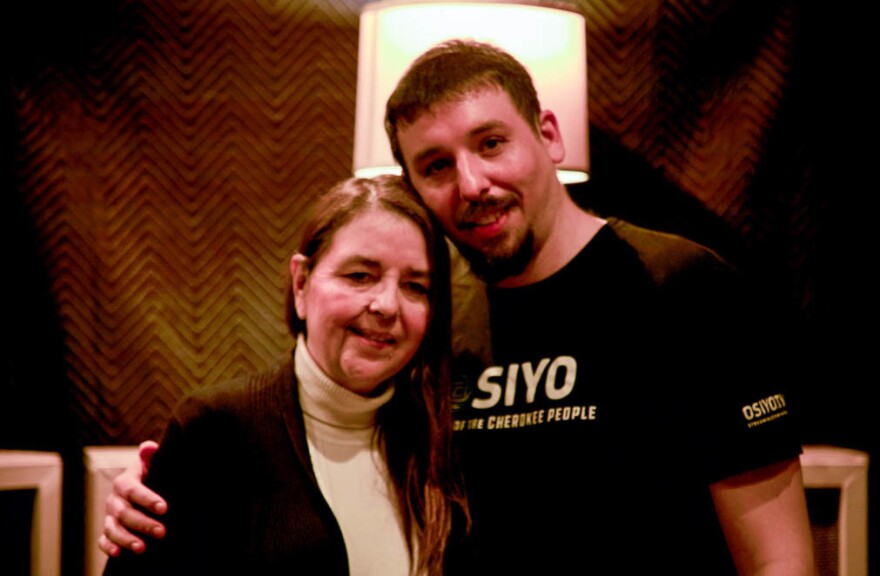Wilma Mankiller, the Cherokee Nation's first woman chief, led a life defying expectations.
Her last name, for one — adopted by her ancestor that refers to a traditional Cherokee military rank — has invited all sorts of misinterpretations.
"I'm fairly soft-spoken and people, sort of, have an image of what a woman named Mankiller would be like, and I don't think that I really fit their image," she told Fresh Air in 1993.
Mankiller led the Oklahoma tribe from 1985 to 1995, during which time she's credited with dramatically growing the Cherokee Nation's tribal enrollment and employment, and revolutionizing the tribe's programs for health, children and housing. She died after a battle with pancreatic cancer in 2010, leaving behind a legacy of community-oriented policies that have served as a model for other tribal nations.
She'll make history once again, next year, posthumously, when the U.S. plans to start minting quarters featuring Mankiller.
After leading a community project to bring water to a small Cherokee town in Oklahoma, Mankiller was elected as deputy chief of the tribe as Chief Ross Swimmer's running mate in 1983. Two years later, she replaced him as chief when he was appointed as assistant secretary at the U.S. Bureau of Indian Affairs.
But Mankiller's position was met with sexism, and her tribal community was resistant to giving her her a seat at the table of governance.
To understand what it took to earn the respect from her tribal community and recognition as a trailblazer, you might ask her daughter and her grandson, Gina Olaya and Kellen Quinton. It wasn't an easy road, they said in an interview with StoryCorps last month.
"People thought that we would be the laughing stock of all tribes if we had a female leader," Olaya said.

At one big intertribal council meeting, Mankiller, who was chief at the time, was intentionally left out, Olaya said. She went anyway.
"She found a chair, dragged it in and forced her way up to the tables," Olaya said. "They get through everything, and they were adjourning the meeting and she stood up and said, 'No, I have something to say.' "
"And she was heard," Quinton said. "People respected her fully after they gave her the moment."
She was elected as chief in her own right in 1987. Mankiller was reelected to a second term in 1991 after she won by a landslide.
"She did what she needed to do to prove those naysayers wrong," Olaya said.
During her tenure, she also helped broker a self-governance agreement that paved the way toward tribal sovereignty.
For all her tenacity, she still found a way to let her guard down, Quinton said.
"To me, she was just Grandma," he said. "We would be joking and dancing and acting a fool together and having a great time."
He and his mother remember Mankiller coming to support Quinton at his baseball and basketball games, where she would scream wildly to cheer her grandson.
"I love that other people got to see that human element of her," he said. "She doesn't have to be the epitome of strength and grace at all times. She gets to have fun, too."
His grandmother is his role model, Quinton said.
"To hear that people still think about her. ... Who would have ever imagined a Native American woman would have been on the quarter of the United States of America?" he said.
"It's mind-blowing," Olaya said.
Audio produced for Morning Edition by Jo Corona.
StoryCorps is a national nonprofit that gives people the chance to interview friends and loved ones about their lives. These conversations are archived at the American Folklife Center at the Library of Congress, allowing participants to leave a legacy for future generations. Learn more, including how to interview someone in your life, at StoryCorps.org.
Copyright 2021 NPR. To see more, visit https://www.npr.org.




